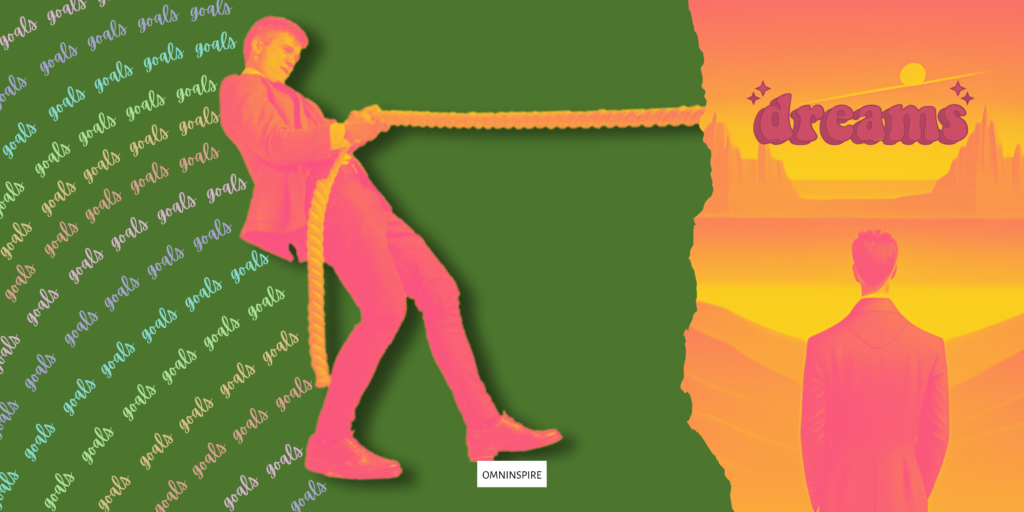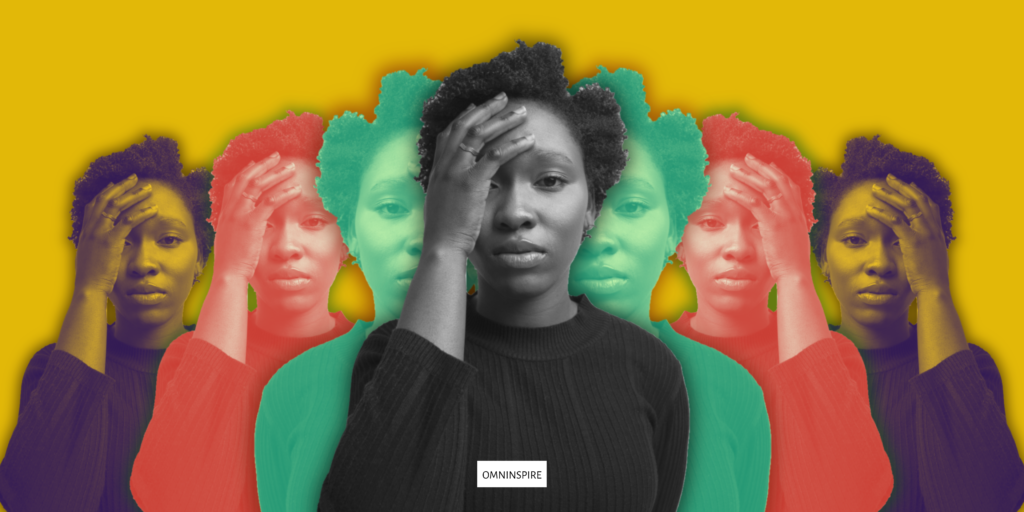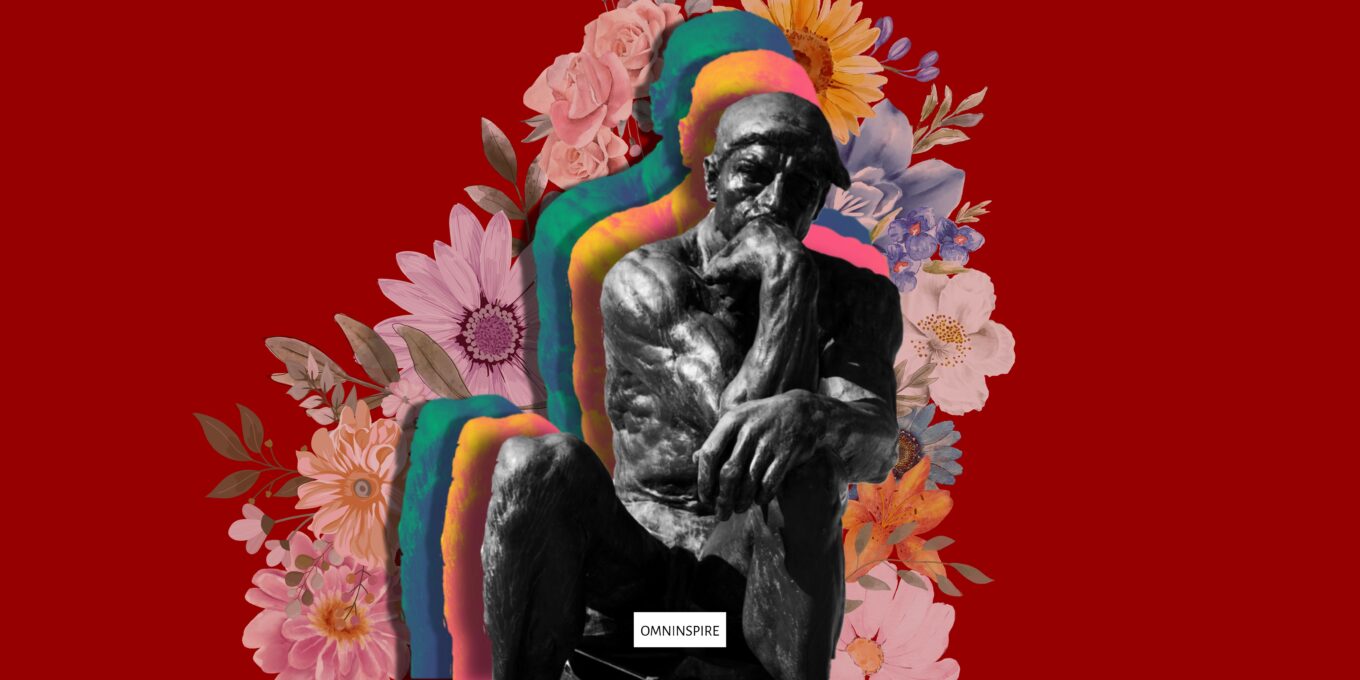Picture Source : Freepik
Edited By : OMNINSPIRE
Understanding Decision Paralysis:
“Life was much easier when we were kids!”
There wouldn’t be a day for most of us when this thought doesn’t pass by our minds.
Our world was smaller, beautiful and how! We felt strong knowing that our parents are right by our side, Immense love and support from our siblings(though we all fought like cats and dogs), Protected environment at schools and unbridled hopes and dreams for our beautiful future.
Cut to adulthood, By the time we seize our free will of making decisions for ourselves, The maturity of our brains from experiences knocks out the dreamy clouds and lands us on the colorless plane of reality. This is exactly from where the conundrum of maturity and decision paralysis arises.
As we progress through life and gain maturity, one might expect decision-making to become more straightforward. After all, with age often comes wisdom and experience. However, the reality is often quite different. Many individuals find themselves grappling with decision paralysis, a state where they feel immobilized and unable to make choices, despite possessing the necessary knowledge and understanding.
The Impact of Psychological Maturity

Unlike our childhood where the dreamland that we created for ourselves was a possible reality in the future for us, Adulthood demands we reach our goals and forces us into the bitter reality. Psychological maturity brings about a deeper understanding of life’s complexities. As individuals progress through life and accumulate experiences, they develop a more nuanced perspective on the world around them. This enhanced awareness can enrich decision-making abilities by providing a broader context for evaluating choices.
However, alongside this depth of understanding comes an increased susceptibility to decision paralysis. The realization of life’s uncertainties and the weight of potential consequences can sow seeds of doubt and hesitation, leading individuals to question their choices more intensely. In essence, while psychological maturity equips individuals with valuable insights, it also introduces new challenges that can complicate decision-making processes.
The Paralysis Puzzle: What Causes Decision Paralysis?
Decision paralysis is a perplexing state that affects individuals across various stages of life, but its prevalence often becomes more pronounced as individuals mature. This phenomenon occurs when individuals find themselves unable to make choices, despite having all the necessary information at their disposal. It’s a puzzling aspect of human psychology, driven by a multitude of factors that intertwine to create a sense of immobilization and uncertainty.
At the core of decision paralysis lies a heightened awareness of the consequences of one’s decisions. As individuals mature, they gain a deeper understanding of the complexities of life and the ripple effects that their choices can have. This heightened awareness can lead to a sense of responsibility and anxiety, as individuals grapple with the weight of their decisions.
Navigating the Maze: Strategies for Overcoming Decision Paralysis

Acknowledge and Self-Compassion:
Recognizing decision paralysis as a common experience is the first step towards overcoming it. Many individuals feel isolated in their indecision, but understanding that others also grapple with similar challenges can provide comfort and validation. It’s essential to treat oneself with kindness and understanding during this process, acknowledging fears and uncertainties without judgment. By practicing self-compassion, individuals can create a supportive inner dialogue that fosters resilience and empowers them to move forward despite the challenges they face.
Break Down Decisions:
Instead of trying to tackle decisions all at once, breaking them down into smaller, more manageable steps can alleviate feelings of overwhelm. This approach allows individuals to focus their attention on specific aspects of the decision-making process, making it easier to identify key factors and priorities. By breaking the decision into smaller increments, individuals can also create a sense of momentum and progress, which can boost confidence and motivation. Ultimately, breaking down decisions enables individuals to approach the process with greater clarity and purpose, leading to more effective outcomes.
Seek Input and Perspective:
Gaining insights from trusted friends, family members, or mentors can provide valuable perspective and support. When faced with indecision, seeking input from others can offer clarity and help individuals see beyond their own biases and limitations. An outside viewpoint can identify blind spots that may be contributing to indecision and provide alternative perspectives that may not have been considered. By engaging in open and honest conversations with trusted individuals, individuals can gain valuable insights that can inform their decision-making process and alleviate feelings of uncertainty.
Embrace Flexibility:
Understanding that decisions are not set in stone and can be adjusted as circumstances change is key to overcoming decision paralysis. Embracing a flexible mindset allows individuals to explore different options without the fear of making irreversible mistakes. By adopting a willingness to adapt and adjust course as needed, individuals can approach decision-making with greater freedom and confidence. This flexibility empowers individuals to take calculated risks and explore new opportunities without being paralyzed by the fear of failure. Ultimately, embracing flexibility allows individuals to navigate through uncertainty with resilience and optimism.
Decision paralysis is a natural response to the complexities of life, particularly as one matures. By acknowledging its presence and implementing practical strategies, individuals can break free from its grip and make decisions with confidence and clarity. Remember, maturity is not about having all the answers, but rather about navigating life’s uncertainties with resilience and self-awareness.







